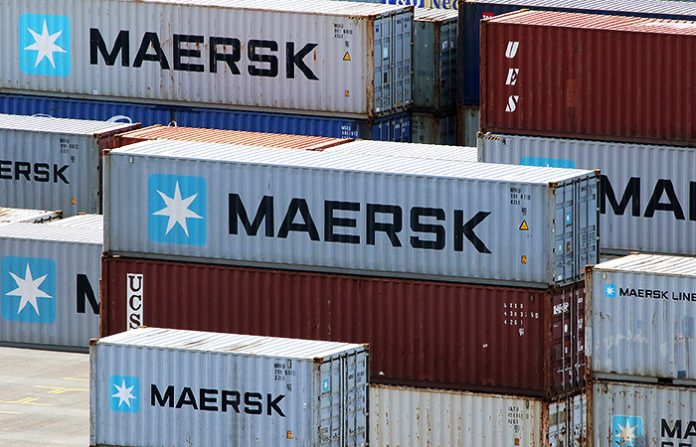In response to the persistently volatile situation in and around the Red Sea/Gulf of Aden, Denmark’s Maersk, a global shipping company, announced on Friday a temporary suspension of Blue Nile Express bookings to Djibouti from various regions, including Asia, the Middle East, Oceania, East Africa, and South Africa.
The decision comes as Maersk, citing current intelligence, emphasizes the region’s substantial security risk.
Maersk cited persistent volatility and security concerns as the main reasons for the suspension.
“The situation in and around the Red Sea/Gulf of Aden continues to be volatile and all available intelligence at hand confirms that the security risk remains at a significantly high level.” the company said.
As a result, the business has taken quick action, eliminating Djibouti, Jeddah, and King Abdullah Port in Saudi Arabia from the Blue Nile Express service.
The Blue Nile Express service, which generally connects ports in the United Arab Emirates, Oman, India, Djibouti, and Saudi Arabia, will be modified to avoid the aforementioned ports due to current security issues.
Maersk ensures that the suspension will not have an impact on carrying capacity, resulting in minimum disruption to company operations.
Maersk’s action underlines the complicated security challenges that shipping companies confront in the Red Sea/Gulf of Aden region.
This decision emphasizes the significance of prioritizing the safety of workers, boats, and cargo in a high-risk environment.
The impact of this decision on trade and logistics in the impacted areas needs to be determined. Stakeholders will actively monitor events and consider alternate measures to ensure a smooth flow of commodities and supply chain resilience.

